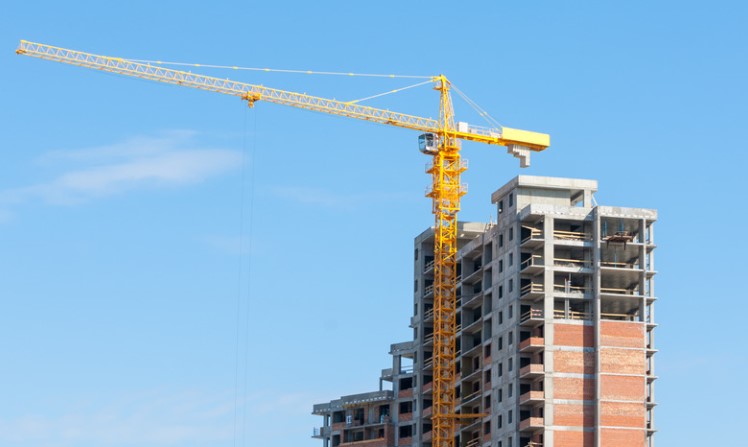If you’re planning to build or renovate your home in Ontario, it’s important to know all about essential construction. It’s not just a buzzword thrown around by contractors and architects; it actually has legal implications that could impact the timeline of your project. In this blog post, we’ll break down everything on what is essential construction in Ontario – from what it means to who is responsible for ensuring compliance. So grab a coffee and prepare to become an expert on this critical topic!
Introduction to Essential Construction in Ontario

Construction is a vital industry in Ontario, responsible for building the homes, offices, and infrastructure that make our province function. With so much construction activity taking place, it’s important to understand what is considered essential construction in Ontario.
Essential construction in Ontario is defined as work required to maintain or improve the critical infrastructure’s safety, security, or functionality. This includes work on roads, bridges, transit systems, water and sewer lines, power generation and distribution facilities, and other similar infrastructure. Essential construction also includes work on buildings that provide critical services to the public, such as Ontario hospitals and schools.
In general, essential construction projects are those that cannot be postponed without causing significant disruptions to the community. For example, repairing a major roadway after a winter storm would be considered essential construction; repainting a school gymnasium would not.
The determination of what is considered essential construction can vary depending on the circumstances. For example, during a severe drought, work on repairs to the drinking water system would be regarded as essential; during a period of peacetime, such work might not be given the same priority.
You can contact your local municipality or provincial government office for more information if you need clarification on whether a particular construction project is essential in your community.
What is Essential Construction in Ontario?
As the government continues to respond to the COVID-19 pandemic, some construction projects have been deemed “essential” and are allowed to continue. But what exactly is essential construction? Here’s everything you need to know about essential construction in Ontario.
Essential construction is defined as construction that supports the health care system, public safety, the continued delivery of essential goods and services, and critical infrastructure. This includes projects required to ensure public safety, maintain crucial industrial supply chains, and keep vital utility services operational.
Essential construction can include new builds, renovations, and repairs. It also includes demolition work and site preparation for future projects. While the province of Ontario has not released an exhaustive list of essential construction projects, some examples of essential construction include:
- Construction projects that support the health care system or critical infrastructure
- Projects required to maintain public safety or critical utility services
- Construction related to the maintenance or repair of existing residential buildings
- Construction necessary to maintain industrial supply chains
- Projects related to energy efficiency or renewable energy sources
- Projects related to the transportation sector (e.g., road construction)
Types of Essential Construction Projects

There are many types of essential construction projects in Ontario. Some of the most common include:
- Road and bridge construction
- Power generation and transmission projects
- Sewer and water treatment facility upgrades
- Airport runway repairs
- Flood control projects
These are just a few examples of the types of essential construction projects that keep our province running smoothly. These vital infrastructure upgrades are necessary for us to quickly see a decline in the quality of life for all Ontarians.
Benefits of Engaging in Essential Construction Projects
There are many benefits to engaging in essential construction projects in Ontario. By definition, essential construction projects are required to maintain critical infrastructure’s safety, security, or function. This includes projects necessary to protect public health and safety and those needed to ensure the continued delivery of essential services.
Some of the benefits of engaging in essential construction projects include:
- Ensuring the continued safety and security of the public
- Protecting public health and safety
- Maintaining the function of critical infrastructure
- Ensuring the continued delivery of essential services
- Protecting businesses and homes from potential damage and loss
- Creating jobs and stimulating economic growth in the area
Regulations and Restrictions for Essential Construction Projects

The government has established regulations and restrictions for essential construction projects in Ontario. Essential construction projects are those that are necessary for the health and safety of the public or that are required to maintain critical infrastructure.
All essential construction projects must follow strict guidelines set out by the government, which include the following:
- Providing personal protective equipment (PPE) for workers, including face masks and gloves
- Conducting regular cleaning and disinfection of worksites and equipment
- Limiting the number of workers on-site at any time
- restricting access to worksites to essential personnel only
- Posting signage and providing verbal reminders to workers about the importance of physical distancing and hand hygiene
- Ensuring that vulnerable individuals are protected from exposure, such as those who are immunocompromised or have underlying health conditions.
The government has also mandated that specific construction projects must be completed remotely whenever possible. These include design, engineering, project planning and management tasks.
In addition, the government requires all essential construction projects to submit a safety plan before beginning work. This plan must outline how the project will adhere to the guidelines outlined by the government for essential construction projects.
Tips for Successfully Completing an Essential Construction Project
You can do a few things to ensure your construction project goes smoothly in Ontario. First, make sure you are familiar with the Building Code. The Building Code establishes minimum standards for the design and construction of buildings in Ontario. It is important to know what the code requires so that you can design and construct your building accordingly.
Second, get all the necessary permits and approvals before starting work on your project. Depending on the scope and location of your project, you may need to obtain a building permit, zoning approval, and other permits from various government agencies. Failure to do so can result in delays or even stop work on your project.
Third, hire a qualified contractor who is experienced with working on construction projects in Ontario. A good contractor can help you navigate the permitting process and ensure that your project meets all the requirements of the Building Code.
Fourth, create a detailed construction schedule and budget for your project. This will help you stay on track and avoid any costly surprises down the road.
Following these tips can increase your chances of completing your essential construction project in Ontario.
Conclusion
In Ontario, essential construction is an important industry that keeps the province’s economy ticking. Knowing what qualifies as essential construction and being aware of its regulations are both key steps in helping ensure a safe and successful operation. With this information, we hope you better understand what essential construction means in Ontario and how to manage your projects within its boundaries properly.
FAQ – What is Essential Construction in Ontario?

Is home renovation considered essential in Ontario?
In Ontario, home renovation is considered an essential service if it is required in order to maintain the safety, security or habitability of a dwelling. This includes work required to address health and safety concerns and work necessary to keep the dwelling in good repair.
Renovations that are not essential include cosmetic work, such as painting or installing new flooring. However, renovations that are required in order to make a dwelling accessible for people with disabilities are considered essential.
If you are still determining whether or not your planned renovation project is considered essential, you can contact your local municipality for clarification.
What happens if you get caught remodelling without a permit Ontario?
If you are caught remodelling without a permit in Ontario, you may be subject to a fine. The fine amount will depend on the municipality where you were caught. In some cases, you may also be required to obtain a permit before continuing with your remodelling project.
What is the home renovation tax credit for 2023 in Ontario?
The home renovation tax credit for 2023 in Ontario is a refundable tax credit that helps offset the cost of eligible home renovations. The credit is available to residents of Ontario who own and occupy their homes and who have paid eligible expenses for qualifying renovations. The maximum credit amount is $1,000 per household, and the credit can be claimed on your annual income tax return.
To be eligible for the home renovation tax credit, the renovations must be made to your principal residence in Ontario and must be completed before April 1, 2024. The renovations must also meet all of the following criteria:
- They should add value to your home
- They should improve your home’s safety, durability or efficiency
- They cannot be part of a routine maintenance or repair project
Some examples of eligible renovations include adding or updating insulation, windows or doors; upgrading heating, ventilation or air conditioning systems; installing solar panels or solar water heaters; and finishing a basement. For a complete list of eligible expenses, please consult the Ministry of Finance website.
What are the essential services in Ontario?
In Ontario, the essential services are:
- Hospital services
- Long-term care homes
- Home care services
- Child care centres
- Foster care homes and children’s Aid societies
- Police, fire and ambulance services
- Utilities, including electricity, gas, water and wastewater
Can I claim home renovations on my taxes in Ontario?
If you plan on making any home renovations in Ontario, you may wonder if you can claim them on your taxes. The answer is yes! You can claim home renovations on your taxes in Ontario as long as they meet certain criteria.
To be eligible for a tax credit, the renovation must be to your principal residence, which is the home that you live in most of the time. The renovation must also be to improve or repair the dwelling, and it must have been completed within the past year.
Keep all receipts and documentation handy if you plan to claim home renovations on your taxes. This will help to ensure that you get the maximum tax credit possible.










